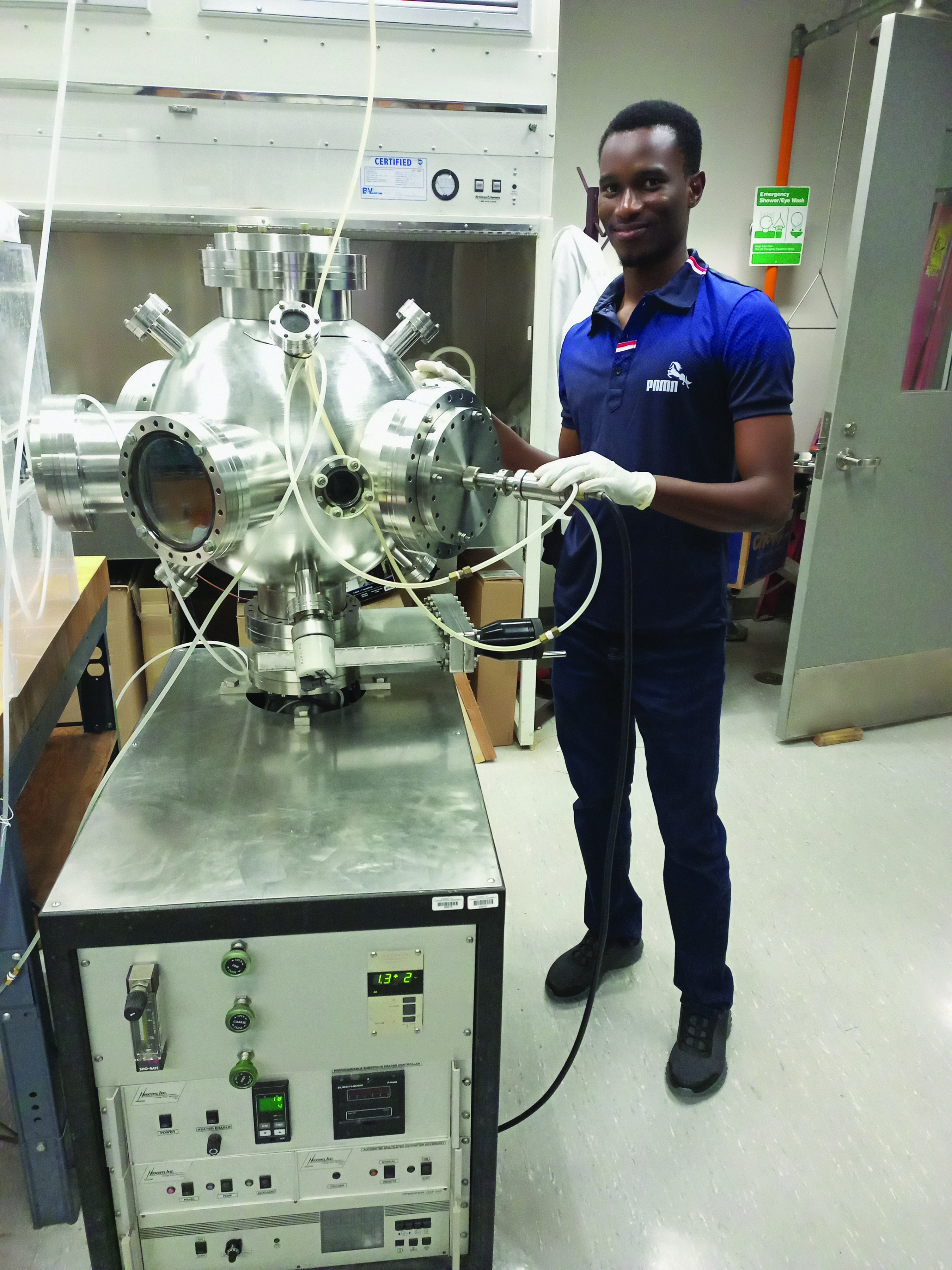Why Graduate School?
Fall
2024
Feature
Why Graduate School?
Frank Efe, PhD Candidate in Electrical and Computer Engineering, Morgan State University
I am currently a doctoral student in electrical and computer engineering with a focus on microelectronic fabrication at Morgan State University. I have master’s degrees in physics and engineering/applied physics from Morgan State and a master’s degree in materials science from Obafemi Awolowo University in Nigeria. My research is focused on the growth of 2D microelectronic materials for device fabrication. I am also a teaching assistant.
In graduate school, I have found it particularly rewarding to gain a comprehensive understanding of how microelectronics function at the atomic level. This involves examining the behavior of atoms in response to external factors such as temperature and the presence of photons. The main difficulty lies in comprehending the fundamental concepts that explain the behaviors we see in our findings.
Graduate school has played a pivotal role in shaping my research interests. Through it, I have learned the rules of growing semiconductor materials, the necessary precautions for utilizing growth techniques, and methods for analyzing and evaluating samples. Pursuing a double-major in my master's program allowed me to achieve mastery in different aspects of physics along the way to a PhD in engineering.
Students interested in this kind of path should maintain focus on their aspirations and have faith in their attainability. All professionals were once novices. I instruct my students to seek a fundamental understanding of the material so as to educate others or utilize it in the future, rather than solely to achieve a passing grade.
Physics serves as the foundation for engineering applications. Semiconductor materials research in particular offers significant advantages to the United States due to its crucial contribution to technological advancement, the growth of the electronics industry, and the preservation of economic competitiveness and national security.
I recommend that students interested in engineering work persistently and strategically on their research and classwork, even when the subject seems abstract. Although a discovery or concept may appear intangible now, in the future it might lead to concrete scientific advancements. Thirty years ago, the idea of an Apple watch seemed unimaginable, but thanks to technological advancements, it has become a reality.

